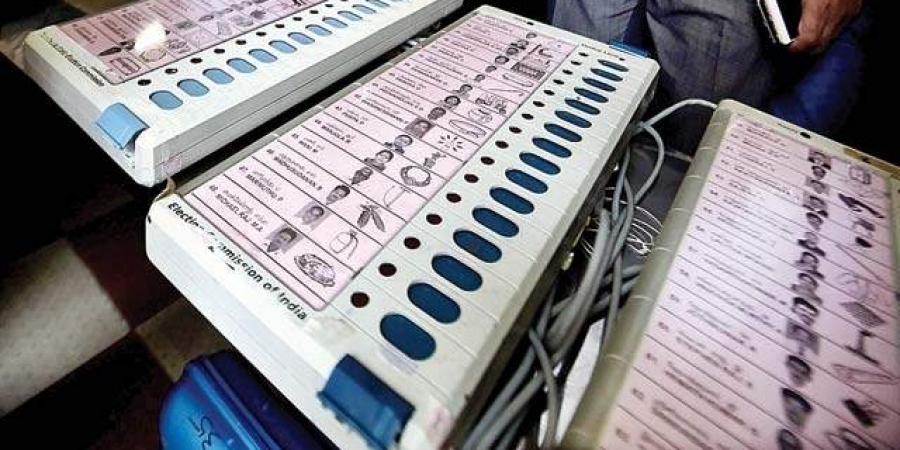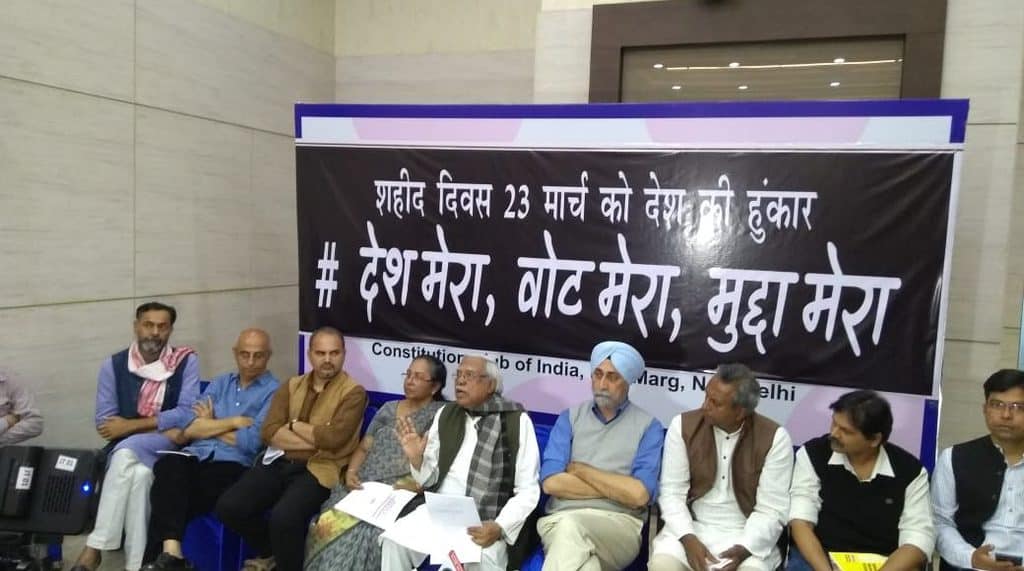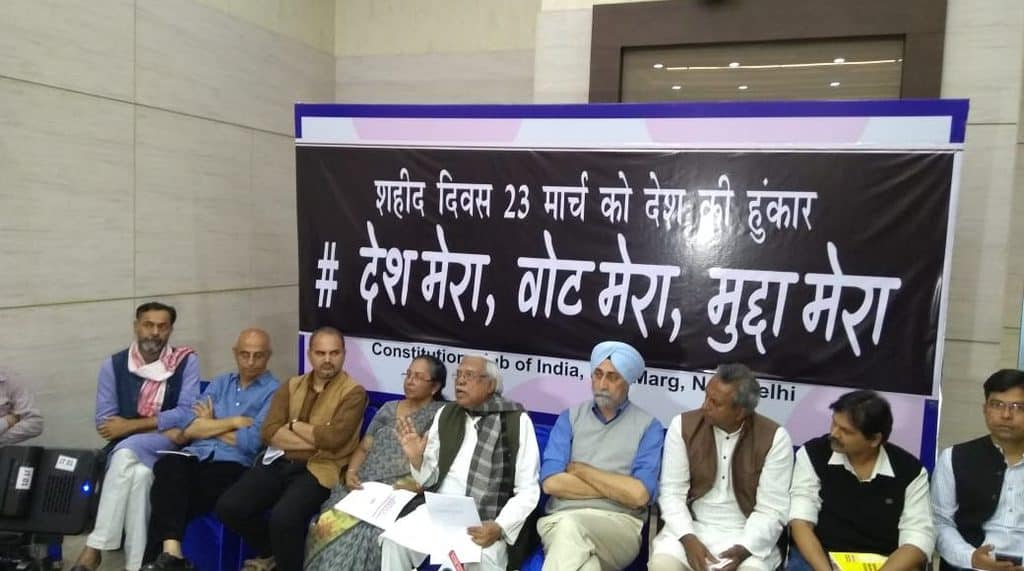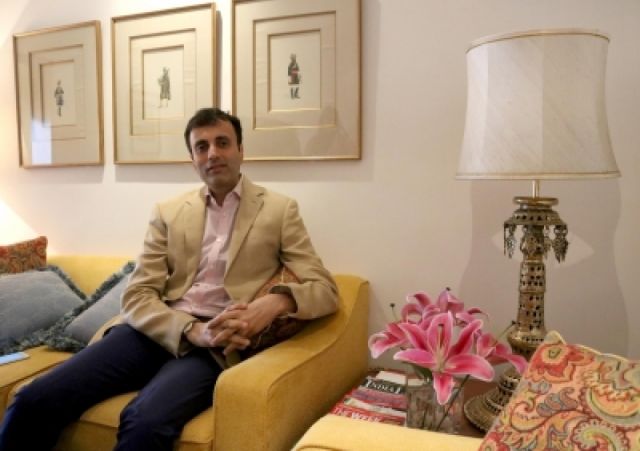
by admin | May 25, 2021 | Uncategorized

New Delhi : The Election Commission on Tuesday issued a notification for the second phase of the seven-phased Lok Sabha elections, kicking off the process of filing of nominations for another 97 constituencies across 13 states and Union Territories.
Voting in the second phase will take place on April 18, said the notification, which comes a day after the poll panel notified the first phase covering 91 constituencies.
The Lok Sabha has 543 elected seats and the polls will be held in seven phases from April 11 to May 19. The results would be declared on May 23.
According to the EC notification, nominations for the second phase would be accepted till March 26, while March 29 is the last date for withdrawal of candidature.
While all 39 Lok Sabha constituencies of Tamil Nadu will go to the polls on April 18, the other states where voting will take place in this phase include Karnataka (14 seats), Maharashtra (10), Uttar Pradesh (8), Assam (5), Bihar (5), Odisha (5), Chhattisgarh (3), West Bengal (3), Jammu and Kashmir (2), Manipur (1), Tripura (1) and Puducherry (1).
–IANS

by admin | May 25, 2021 | News, Politics

New Delhi: Several civil society organisations have come together on one platform to launch a nationwide campaign highlighting failures of the ruling BJP-led NDA government ahead of the Lok Sabha elections.
Titled “Desh Mera, Vote Mera, Mudda Mera”, the campaign will launch hundreds of simultaneous programmes across the country on March 23, which is also commemorated as ‘Shaheed Divas’ or the martyrdom day of freedom fighters Bhagat Singh, Rajguru and Sukhdev.
The organisations, which include the Swaraj Abhiyan, the National Alliance of Peoples’ Movements, the Pension Parishad and the All India Kisan Sangharsh Samanvay Samiti, a joint platform of more than 200 farm organisations, said on Monday the campaign will aim to bring “real issues back into electoral focus” and increase awareness about issues like farm distress, hate crimes and unemployment.
“At a time when the narrative of elections is being hijacked under the garb of nationalism, it has become imperative that civil society organisations, social movements and groups who share a commitment to our constitutional values co-ordinate their energies to restore democratic balance,” said activist Harsh Mander addressing the media here on Monday.
Swaraj Abhiyan’s Yogendra Yadav said the aim of the campaign was to increase awareness about issues like farm distress, hate crimes, unemployment and attacks against Dalits, women journalists and human rights activists.
“Just when substantive and inconvenient issues had begun to surface in this election, the focus suddenly shifted to issues of national security that allows the current regime to avoid critical scrutiny of its record,” he said.
Salil Shetty of the No Voter Left Behind Forum said, “This campaign aims at bringing the focus back to real issues like unemployment, growing inequality, attacks against Dalits and minorities; the condition of marginal communities and deficits in the basic welfare provisions.”
AIKSCC Convenor V.M. Singh stressed the two pro-farmer bills — freedom from debt and guaranteed remunerative prices — pending before Parliament must be passed the earliest.
Hannal Moula of the All India Kisan Sabha (AIKS) also raised the issue of land rights to the landless.
Representing unemployed youth, Sucheta De of Young India Adhikar March and Anupam of Yuva Halla Bol exposed the current regime’s shoddy record on employment.
Nadeem Khan of United Against Hate said the issue of lynching should be of concern to every Indian.
(IANS)

by admin | May 25, 2021 | Interviews, Politics

Ruchir Sharma
By Saket Suman,
New Delhi : The popularity graph of Prime Minister Narendra Modi has fallen drastically and what seemed a year ago as another wrestling match “with only one boxer in the ring” now seems a Lok Sabha election too close to call, says global investor and bestselling author Ruchir Sharma.
Sharma, who has been chasing election campaigns in India for over two decades and has just written “Democracy on the Road”, says that this change reflects the strength of Indian democracy and is particularly significant at a time when obituaries calling the death of democracy rule the roost in many parts of the world.
This neck and neck fight at a time when there is so much despair about democracy in the world, Sharma said, shows how deeply rooted India’s democratic set up is.
He said that Modi had begun eyeing the Prime Minister’s post long before 2014 and following him closely during the election campaigns, Sharma could make out as early as 2012 what his real ambition was. On the other hand, Congress President Rahul Gabdhi was a very different person, immature, not interested in listening, and with not-so-good campaigning skills.
Cut to the present, Sharma said, Rahul Gandhi has changed, he is much more sensitive, he seems to listen and engage more.
“He seems like a full-time politician now, even his campaigning skills have changed, he implies shout-and-call technique a lot more like Modi. There has been a significant change in him,” Sharma told IANS in an interview.
But what really is going to stop Modi?
Sharma said that there is a gap between what prevails in popular media and the actual mood of the voters in the hinterland. He said the 2019 elections will be a true parliamentary election where regional leaders, instead of the prime ministerial candidate(s), will sway the votes.
“India is just not cut for a presidential election. There was a Modi wave in 2014 but even then it was restricted to the north and parts of the West but BJP’s vote share was still only 31 per cent. The mood of the voters will vary from state to state as to what alliances are stitched up,” he added.
He said that Priyanka Gandhi’s entry is too late to make an appeal in Eastern UP.
Describing her as a “charismatic leader” on the ground, Sharma maintained that her plunge is too late because of the caste blocks in Eastern UP. He, however, said that the greatest difference she can make is if she stands as “the combined Opposition candidate from Varanasi against Modi”.
She has to do something as big as that because then the energy will be focussed in one big constituency that will have a larger impact, he said.
According to Sharma, the biggest difference between the 2014 and the 2019 general elections will be that in 2014 the BJP was “far too ahead in the social media game” whereas now the other parties have caught up too and “the gap has narrowed”.
He said that in a country as diverse and heterogeneous as India, it is very difficult for one leader to dominate a nationwide election.
There is hardly any discussion about Rahul Gandhi or Modi in Tamil Nadu, it’s always about the regional leaders. That’s how our country is, it will not be easy for one centrist person to dominate the elections, he said.
(Saket Suman can be contacted at saket.s@ians.in)
—IANS




